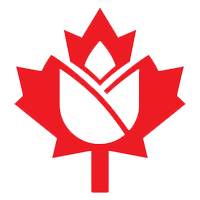29 Jan Floating Farm: Rotterdam is home to the world's first floating dairy farm
A farmer, 40 cows, and robots to collect manure and distribute fodder – all floating on the water of the largest port in Europe. Not 'pie in the sky' but Floating Farm; the first self-sufficient floating farm in the world, which will shortly begin operation in the Merwe4 Haven of Rotterdam.
Land scarcity, climate change, rapid population growth concentrated in and around the big cities, long distances between the sites of dairy production and consumers leading to increased transport and pollution… ‘ these are all important factors behind the Floating Farm project, led by Rotterdam based company Beladon.
“There are many good reasons to bring dairy production as close to consumers as possible’, says Peter van Wingerden, CEO of Beladon and the initiator of the Floating Farm. “Ever more people live in the big cities, far away from the sites of dairy production. A massive amount of transport is required to deliver dairy products to consumers and this represents added pollution and a heavy burden on our infrastructure. If we can find a way to get dairy production off the ground in urban areas we will be able to reduce both transport and pollution.”
From residues to milk
In this case ‘getting off the ground’ is meant both in the literal and in the figurative sense. “I know that this doesn’t make much sense to a lot of people, but it does to me. Because of the rapid population increase, land becomes ever scarcer. And therefore, so does the amount of land available for farming and producing food. Many large cities like Rotterdam are situated in delta areas, and in Rotterdam we can also benefit from residual flows from existing sources of production such as the waste products from breweries, mills and potato processing into the bargain. We can integrate these products into our cattle feed. And eventually, we can all enjoy the milk”, says Peter with a smile.
Circular economy
Circularity is an essential principle for the Floating Farm. Water supply and drainage, generation of energy, waste processing and feeding will all be dealt with in the Floating Farm's 'closed system'. The use of solar energy, the production of cattle fodder using LED lighting, the collection of urine and manure for recycling into compost, the cleaning and re-use of rain water; these all mean that the Floating Farm will not leave behind any negative footprint.
For more information, please check the website of Floating Farm.

Sorry, the comment form is closed at this time.